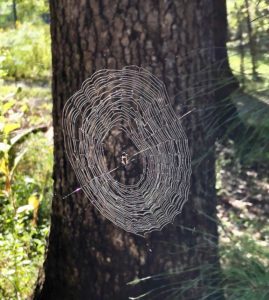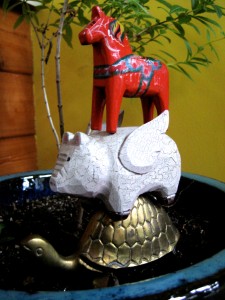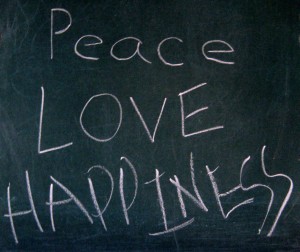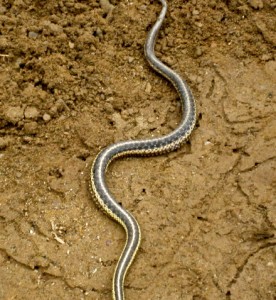Fluidity: The ability to go with the flow.

– Photo by Jan Ketchel
What is it that exhausts us in this time of great change? Understandably, we are trying desperately to hold onto the world as we have known it. That world is rapidly slipping away. How can we learn to let go in this time of breakdown and re-formation, as we flow into our next world dream?
The destructive energy wave of now is the tidal wave of trickster. I call it trickster because it acts with full abandon on its path of destruction, on impulse, defying all reason. We are all part of that wave, whether we are surfing its exhilarated crest, are dragged mercilessly under its tow, or find rest in its calm center. Trickster energy is active and volatile. Its impact is unnerving, disheartening, yet potentially clarifying, if used to advantage.
In the 1990s, I spent seven years deeply immersed in Carlos Castaneda’s public launching of Tensegrity, the modern version of the practices of his historic shamanic line. Carlos was faced with the truth that his energetic configuration as leader was one of ending, not continuing, his shamanic line. His task was to use his volatile energy to break down practitioners’ dependence upon an external guru and launch them into assuming personal responsibility for their own spiritual advancement. He didn’t have much time, so he used everything he could to achieve his agenda.
The teachings in Tensegrity were multifaceted, but the overarching methodology, at that time, was trickster energy that sought to shatter a practitioner’s attachment to the prevailing social order, teaching them to assume responsibility for their decisions and actions, and develop the fluidity to navigate infinity, now, in this life. It proved to be a challenging methodology.
For instance, even if you were well known to all gatekeepers at a weeklong intensive workshop, if you failed to wear your assigned name tag on the final day, you were denied entry, treated as if you were a perfect stranger.
At another workshop, Carlos would not show up, though you had paid dearly to see him. You were told he simply wasn’t energetically available, and that someone else was taking his place.
In truth, it ultimately didn’t matter who showed up because all the shamans of his party were the same, delivering profound teachings. However, being attached to having to see the Carlos Castaneda, when that mattered to ego, was an opportunity to be incensed by unfairness.
In other instances, agendas might be scrapped in a heartbeat. You’d be pushed into practicing extremely taxing physical movements on a full stomach, directly after a meal break.
Carlos would entice you to fly across the country, or the world for that matter, for a mere three-hour workshop. Staying attached to the limited time allotted, and the monumental effort to get there, challenged our relationship to time and how it was valued. From there, of course, followed the trappings of unfairness: so little for so much!
Carlos would mercilessly ridicule peoples’ attachments to love and relationship; sexual relations were highly frowned upon if one was sincere about one’s quest for energetic freedom. These same rules did not appear to apply to himself and his cohorts.
The truth is, as many spiritual traditions know, that sexual energy is the energy of dreaming, as well as creation. So, not for any moralistic reasons, attention to how one employs one’s sexual energy is a consideration for all spiritual journeyers.
The net effect of these seemingly unfair and hypocritical practices was to generate anger and protest. Carlos would then point out how much energy the ego spends upholding its own importance. “Life is not fair, we live in a predatory universe,” he’d say. Once one got to the point of blankly resigning to Carlos’s unpredictable and inconsistent antics, he’d point out how much energy was now being spent on indulging in self pity.
To survive the trials of the shaman’s world one had no alternative but to arrive at a place of no pity, for self or other. In that place, one is clearsighted and spends energy only on what is absolutely necessary to act upon. One completely frees oneself of the energy drain of defending one’s self importance or indulging in self pity. This is the key to fluidity: honing the ego’s ability to serve right action, detached from the need to defend itself.
Carlos was the consummate trickster, perhaps the greatest of the 20th century, reclusive and mysterious to the end. His dedication to his intent to shift the world’s dying dream cost him an early death. He had boundless energy, impacting apprentices throughout the world. He sustained his life on sugar and caffeine until his abused, diabetic body could no longer house his energy body.
The cognitive dissonance of his personal imbalance, with the spiritual advancement his teachings provided, assured that he would never be put on any kind of postmortem pedestal. This was core to his reading of the energy of our time. For Carlos, the day of the guru was indeed over. Ultimately, he taught that everyone needs to discover their own spiritual/energetic being, not simply follow tradition, dogma, or charismatic leaders.
For my wife Jeanne and I, our immersion in Carlos’s shamanic world prepared us to launch each other into new dreams at the moment of her final exit from this world. We both turned on a dime and immediately walked into new dreams, as they presented themselves, fluidly accepting what came next. Not an ounce of energy was spent on protest or sadness, as we went with the flow of the many dreams that were to come.
Carlos had stressed the value of facing oncoming time. His analogy was a train. Most of us tend to sit in the comfort of the caboose, complacently watching the past recede out the back window, through the filter of the known. He preferred sitting in the first car, the locomotive, staring attentively and excitedly at all that approached in oncoming time. If we insist on living in the caboose of the known, that which is already said and done, we never develop the fluidity to navigate oncoming change.
Fluidity demands that we soften and release all attachment to entitlement. Encounter with trickster energy is ideal for this unburdening. Learning to not take anything that comes at us personally, is critical. Of course, we may be wounded by many things. But we can heal quickly from a wound if we release our obsession with the unfairness of how we are treated, and by letting go of what we feel is owed to us as a result.
For the shamans of Carlos’s lineage, human beings fail to wake up to their full innate potential because they spend the lion’s share of their energy in the complacency of complaint. Once one lands solidly at the place of no pity, fluidity becomes one’s chief navigating tool. Interestingly, as one lands at the place of no pity, one simultaneously lands at the place of real love.
Jeanne, from her inorganic being in infinity, delivers daily to Jan, her organic soul sister, soulbytes that stress the new dream at the heart center, with love as its overarching modus operandi. Beyond the fixations of specialness, possession, importance, and pity is the awesomeness of interdependent oneness and love for all.
Utilize, fully, this opportunity we are now living through, this time of trickster tidal wave upon tidal wave, to hone your energy. Recapitulate emotional and physical triggers, and free your energy from victimized resentment and the refusal to accept the truth of everything.
And then, from a newly detached lightness of being, exercise fluidity, as you find your way to the solid dream of love.
Stalking fluidity,
Chuck






